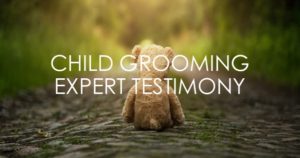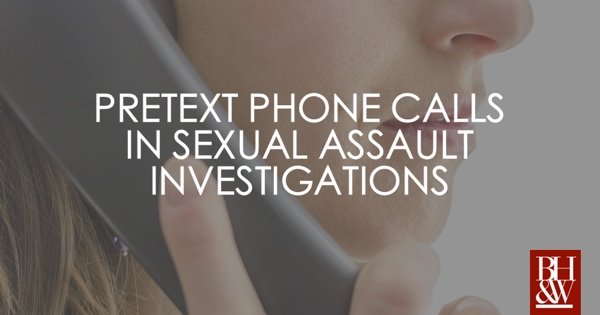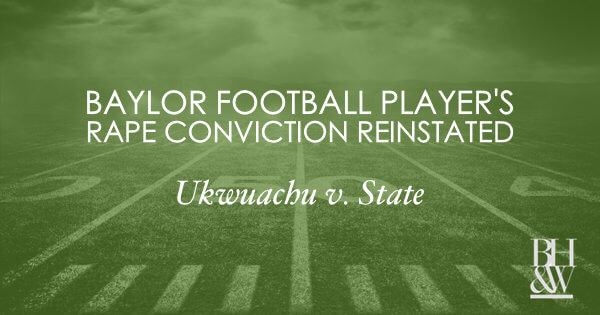 Today, in Morris v. State, a 6-3 opinion authored by Presiding Judge Keller, the Texas Court of Criminal Appeals held (by taking judicial notice) that “‘grooming’ of children for sexual molestation is a legitimate subject of expert testimony.” The opinion, which reads like a law review article at times, goes into great detail about the state and federal courts that have long recognized “grooming” as an appropriate (and helpful) area for expert testimony. (If you don’t know what “grooming” is, HERE is the Wikipedia definition.)
Today, in Morris v. State, a 6-3 opinion authored by Presiding Judge Keller, the Texas Court of Criminal Appeals held (by taking judicial notice) that “‘grooming’ of children for sexual molestation is a legitimate subject of expert testimony.” The opinion, which reads like a law review article at times, goes into great detail about the state and federal courts that have long recognized “grooming” as an appropriate (and helpful) area for expert testimony. (If you don’t know what “grooming” is, HERE is the Wikipedia definition.)
Judge Price’s Dissent is highly critical:
After doing the vast bulk of the research for the State, the Court now essentially holds (despite the absence of any actual litigation on the subject below) that case law from other jurisdictions demonstrates that grooming is such a well-established psychological concept that the State, as proponent of the grooming-based testimony here, need not have been required to prove it at all.
Believing the trial record too bare for the Court to take judicial notice of the reliability of grooming-based testimony, Judge Price dissents. Judges Meyers and Womack joined the dissent.
Judge Meyers also dissented, stating:
Irrespective of whether the study of “grooming” behavior is a legitimate field of expertise, I do not think [the expert in this case] was qualified to be an expert on this issue. He had no degree in any field of study involving human behavior, no specialized training in “grooming” behavior, and he did not show that the training and experience he did have enabled him to distinguish such behavior.
Judges Womack and Price joined the dissent.
Judge Cochran concurred in the judgment and would hold that grooming is an experiential field rather than a “soft science”:
This is not rocket science. It does not depend upon any scientific, technical, or psychological principles or methodology. This type of testimony does not depend upon educational expertise, any calculable rate of error, learned treatises, peer review, or any other esoteric skill. This is not even “soft science.” It is just “horse sense” expertise developed over many years of personal experience and observation.
While they all seem to agree that “grooming” is an appropriate area for expert testimony, the lingering question (at least for me) is – What does it take to qualify someone to be an expert witness on child grooming? A question for a later day I suppose.










